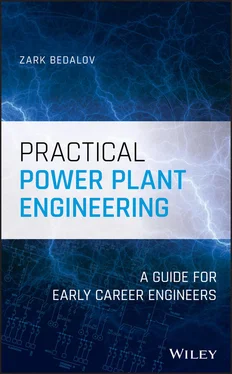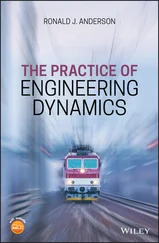In the years after Venezuela, I often lectured younger engineers on many engineering issues and had discussions with companies to create a manual that would help their electrical engineers to follow and practice good engineering. It took a while. Finally, in 2015, I agreed to do a book. It took me one and half years to complete a draft copy. Now, it is here in your hands.
As an experienced electrical engineer I have noted huge obstacles young engineers were facing to become experienced engineers. I'm not talking about civil or mechanical, but electrical engineers. Let me explain. For mechanical engineers, everything is visible. Here's a pump, pipe, valve, filter, and strainer. All of it, recognizable objects. What's on the drawing is what you see in the real life. Open a valve and water or oil flows. You see it, hear it. If it leaks, you see it and you replace a gasket or clean a clogged filter.
Electrical engineers, however, in the same environment face an invisible world. Some call it “The mystery world”. You may be able to recognize a few pieces of equipment from the drawings, but this is not what matters. In the electrical engineering, it is what you don't see that matters. If something goes wrong, you don't know which way to look. There are no electrons anywhere to be seen? Where do you start? Well, the first several years will be difficult, but with some experience and guidance, you start seeing the invisible. One young engineer told me that he came to his first job interview ready to solve a bunch of differential equations, but all that school teaching didn't seem to matter.
It is clear that mechanical engineers have a head start in the plants and the plant designs. Right off the bat, they are confident about themselves, of what they are seeing, doing, and learning. They will eventually become project managers and will boss the electrical engineers. I have seen this over and over again, anywhere in the world. Young mechanical engineers talk job immediately with confidence and are liked by the bosses because they talk the same language. Meanwhile electrical engineers are fearful to ask questions or suggest anything. They struggle for years. The bosses seem don't know how to talk to them.
So, while our mechanical engineering colleagues confidently talk about the things they do, and advance in their experience and carriers, we the electrical engineers appear shy and aimless, struggling in the world that has no resemblance to what we studied so diligently for many years.
Even the language is different. Here come buzzwords. Everyone uses buzzwords and most of them you don't understand. If that is bad enough, it gets even worse. Young mechanical engineers appear to be smarter. They seem to be learning faster every day in their visual world. As they say, a picture is worth 1000 words. On the other hand, a young electrical engineer gets very little visual information and thus retains less. Mechanical engineers are immediately immersed into the overall (big) picture of the plant, while the electrical engineers are pinned down to look at details.
Without an experienced engineer to explain things and to guide him, a young electrical engineer is lost. It would help if he only knew the questions. Not even that. He goes home after work and wonders: What is the reason for having me there? Will I ever be useful?
Let me give you an idea what happens on your first day on the job. You graduated from a difficult faculty of electrical engineering. It was tough and struggle, but you studied hard and endured, and felt you were on the top of the world. The world is yours. What a great feeling of accomplishment and exuberation that you can do anything.
Then you start looking for a job, and soon realize that the world is not all yours. The employers are not looking at your grades but at your experience, of which you have not much to show for. You cannot choose your job and will be happy to take anything that comes along. Finally, after three months of job searching, an engineering company was willing to give you a try.
You will be working on a new project. On the first day, you are introduced to your colleagues from all the disciplines and given a lot of drawings and reports to read. The material is mostly process and mechanical, to give you an orientation of what the project is all about. You were also told to talk to everyone and ask any questions you might have regarding the material you were reading as well as to acquaint yourself with the things the others were doing.
Then after a month of “doing nothing” your lead electrical engineer gives you for instance a couple of tender documents for a 10 MVA transformer just received from the bidders. One is for a transformer with 8% impedance and the other with 9.5%. The first one is more expensive than the other. The Lead tells you to evaluate the cost benefit of one over the other and if you have any questions feel free to ask. Since you were a junior engineer and need a bit of a help, he reminds you that the larger impedance causes more Watt and Var losses and higher voltage drop, while the lower impedance allows for higher fault level on the downstream bus, which may force the project to use more expensive equipment.
Wow, what now? That day back at home you look through your text books and find nothing relevant to help you out. Well, of course not. The text books tell you about the transformers and the transformation in general, but nothing specific for a particular application. That may be the last time you looked at your school books.
This actually is your first day at work. Remember that exuberating feeling when you graduated? You could do anything? Well, your Lead lowered you down to the real world. Now you feel hopeless and lacking confidence. You start asking questions all around and gradually acquire some knowledge but you are still far away from being able to decide which transformer to recommend. Fortunately, your Lead had already made that decision. Of course, he wouldn't let his junior engineer to decide on such an important matter. He just wanted to test you on how you think, how you formulate your questions, and how you deal with the engineers around you.
Welcome to the job. It'll be tough and it'll take time. All of us have started like this. You'll be doing fine if you immerse yourself into the project and start building up your practical experience over several years of working with experienced engineers on a variety of projects. This also includes those of other disciplines to learn what is important to them and how to select the electrical equipment to drive and automate their equipment. This real world book will help you get there.
This book is a result of 50 years of design and field engineering by experienced engineers and teaching others to do the same. As an experienced engineer with acquired practical knowledge, I'm ready to share it with the new coming engineers and lead them through a transition for which there is no blueprint or book, until now. This book provides useful information as a reference guide for all the electrical engineers. It fills the gap between the Academia and being an experienced engineer. If you read this book, you will learn a half of it you need to know and all the proper questions you should ask.
Hopefully this book will spawn others to write books. Your first job is a step into the open, away from your school. As soon as you start reading it, you realize this is a different world and it won't be easy. I agree, it won't be easy, but this unique book in your hands will give you a kick start, help you interact with other engineers and understand what is going on in the design office and in the field around you.
Why not searching on Google? Yes, there is plenty of this stuff and hundreds of answers on the internet. Well, if you only knew what you were looking for and had knowledge to properly assess it for your application? Without proper feedback, you don't know what is right and what is wrong and how to resolve doubts. “The Internet often seems to be a source of befuddlement rather than enlightenment,” as Gregg Easterbrook eloquently put it in his outstanding book “Sonic Boom.” This book gets straight to the point of what you need to know.
Читать дальше












